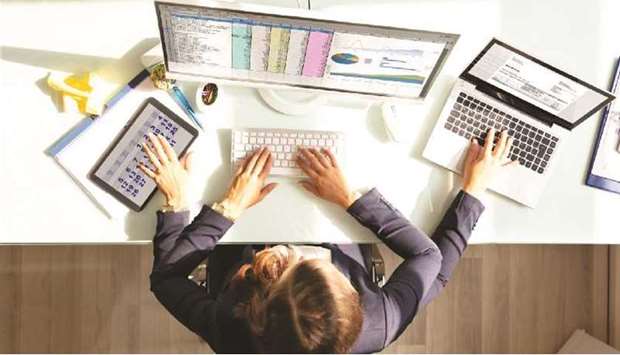A number of the 37 open tabs on my laptop are currently devoted to trying to substantiate various pop culture claims about multitasking. Does it increase cortisol levels or reduce your IQ by an amount twice that of smoking? Does it make you less productive or less empathetic?
I struggled to tease this out. I started by answering an e-mail about union membership in Chile, updating a spreadsheet and paying some bills. After that, I forgot what I was doing for a while and stared at my phone until I became enraged by a bluebottle (and decided to find out whether “bluebottles make you homicidal” is one of the 72 Japanese microseasons: it isn’t).
That served as a sort of reset and I managed to concentrate long enough to work out that the IQ claim comes from a 2005 study on technological distraction, which found that participants distracted by calls or e-mails suffered a 10-point IQ drop on average. The impaired productivity claim seems to derive from 2009 Stanford University research in which heavy multitaskers performed worse in a range of tasks.
One minor pet-related emergency and three urgent e-mails later, I found a 2017 paper that said only one study found multitasking led to increased cortisol levels, but at least three showed it increased “stress, anxiety and fatigue”. The empathy claim is a stretch, but a University of Sussex study showed that higher “media multitaskers” – concurrent consumers of multiple media forms – had less brain density in the anterior cingulate cortex, a brain region responsible for empathy, among other things.
Without wishing to come across like Michael “enough of experts” Gove, perhaps we don’t need journal citations to confirm that when you do lots of things at once you become more stressed and lose focus, and that this is hugely exacerbated by having the whole Internet in your pocket. We know we’re cognitively fried, and perhaps have never been more so. No one with any combination of caring responsibilities, children, a job, a life and a smartphone has been writing King Lear or elucidating the laws of motion and gravity in these plague times.
Instead, particularly if we have been working from home, we have made a sort of virtue of our fractured, stressful attempts to serve competing demands. The unavoidable leaching of our personal lives into our professional ones over the past 18 months has had its good points. It is right to acknowledge we are not single-minded productivity drones but people who look after other people, with small, sticky fingers reaching for our keyboards, cats licking their bits on Zoom calls and washing on our radiators. But the pandemic has definitely compounded our multitasking problem, and, worse, it has normalised – glorified, even – a kind of steroidal, heroic multitasking.
The adverts are bad for this: “You’re amazing,” they say, over a heartwarming montage and a sub-Ed Sheeran soundtrack. “You’ve taught the kids phonics, amused the baby, made a cake and extracted Granny from a Facebook conspiracy hole, all while smashing your Q2 targets, mentoring gormless Gavin and boosting team morale. Yay, you! Now treat yourself to a new phone so you can do even more of that.”
Multitasking can feel good. There is often a moment of manic, adrenal exultation, a glorying in your ability to keep all the balls in the air like some kind of Nicola Horlick superwoman. In my experience, however, even before you’ve fully allowed yourself this moment of self-congratulation, something, somewhere has already gone wrong. Even when it hasn’t – and it has; you just don’t know it yet – it’s an artificial high, and bad for you: a caffeinated energy drink of an existence, soundtracked by the bluebottle buzz of distraction.
I don’t glamourise, and have no desire to return to, a monotonous life of agrarian hard labour: my back couldn’t cope and anyway, there is delight in variety. We can’t realistically refuse to multitask, either: life is and always has been a set of conflicting, often simultaneous, demands. But can we at least stop glamourising this kind of juggling now? There is plenty of evidence that it is bad for us, even if I can’t concentrate for long enough to find it. Multitasking should come with a health warning, not a glow of heroism.

684172
